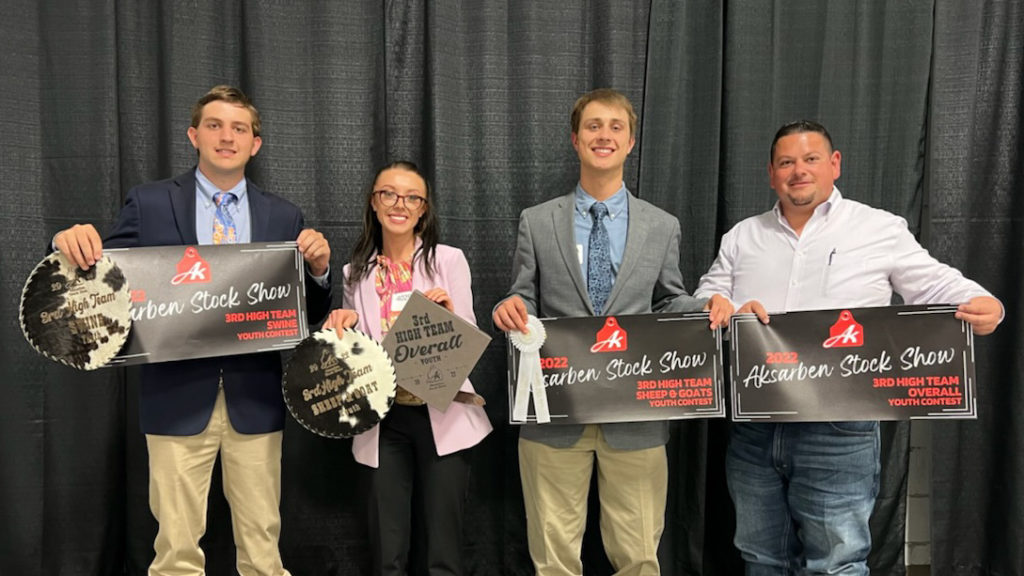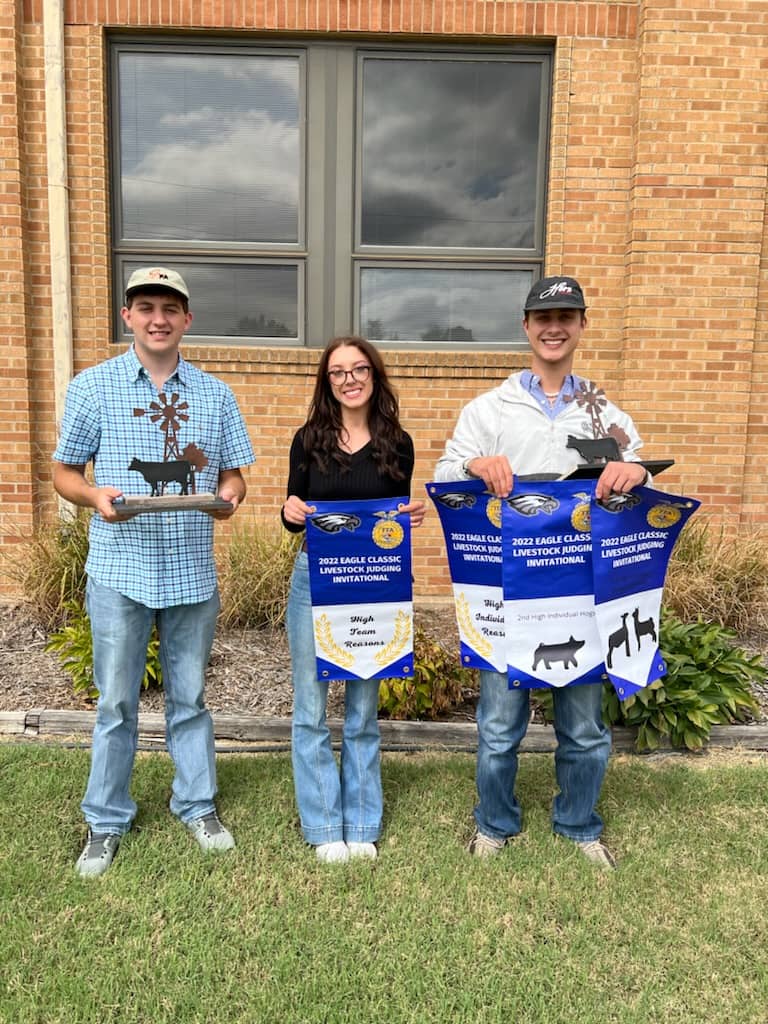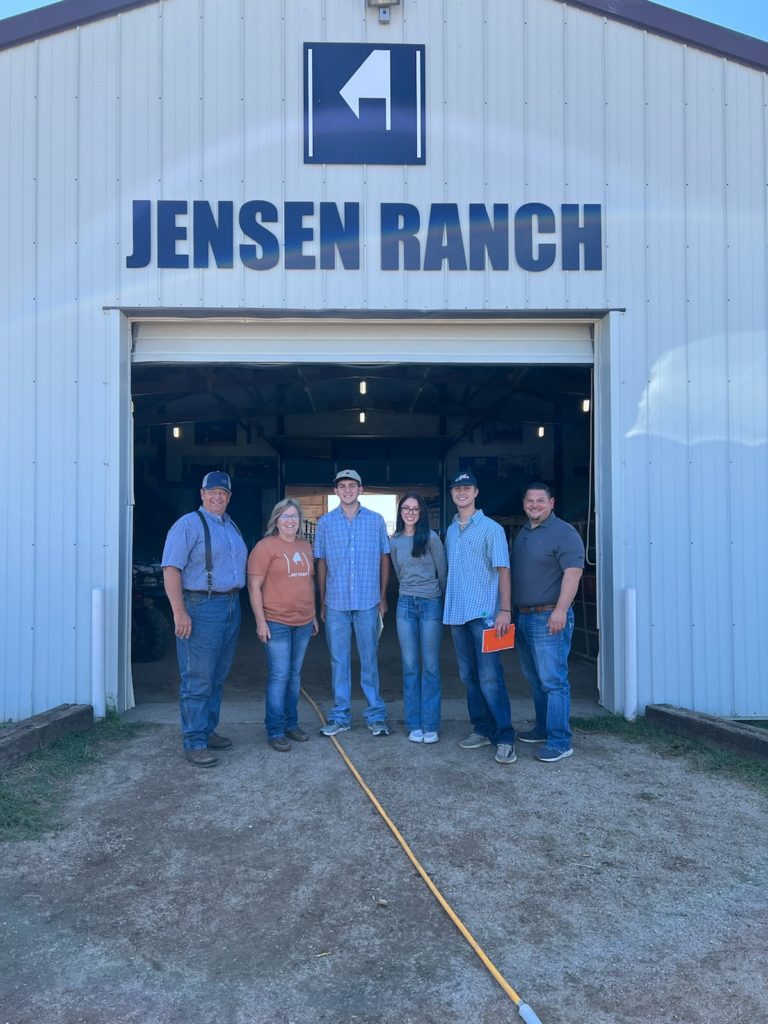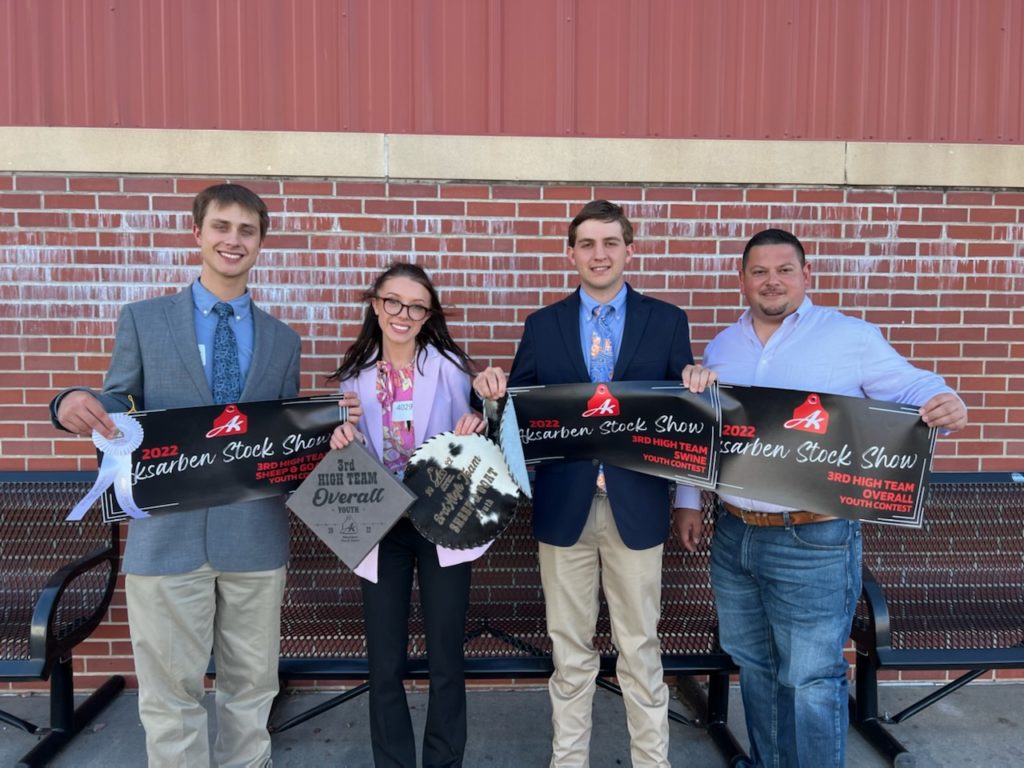
The trio’s third-place finish was sparked by a 3rd High in Sheep/Goats, 3rd High in Swine, and 6th High in Reasons competitions. Teams from as far away as Wyoming and Virginia were on hand at the contest.
“We work hard, we know we’re skilled, we know what we’re good at and we know we can compete with the best of them,” Schroeder said of the team’s performance. “I wouldn’t really say I was surprised, I would say more relieved to see how far we’ve come since our first couple of years of judging and that we can truly compete at the highest level.”
To qualify for nationals, the team first competed at the District 7 Livestock Judging level and won that contest, and from there they received an invitation to compete at state, which was at the Texas 4-H Roundup in June in College Station, according to Brown County Agrilife Extension Agent Nick Gonzales. The trio finished in the Top 6 at College Station, which resulted in the trip to Nebraska.
Adams explained the process of livestock judging as, “Evaluating different market animals and breeding animals from the spectrum of sheep and goats, cattle, and pigs. You have eight classes, four animals in each class, and following your priorities you judge from best to worst on the market and breeding sides.”
Cozart, Schroeder and Adams have been judging livestock together since elementary school.
“I would say my favorite part, since we’ve been judging together since the fifth grade, is that over these past years our team has gotten really close,” Adams said. “I like that a lot, that I’m able to go to my teammates and ask for anything, livestock judging, or non-livestock related. I’ve built lifelong friendships and many other relationships with people around that state and nationwide that I really appreciate it.”
Cozart added, “My favorite part is just traveling around and getting to go to different operations and see all different types of livestock and getting to meet the people at the places we go work at before contests.”
The most rewarding part of livestock judging, Cozart said, is, “The connections you make with the other teammates and of course getting the chance to go judge in college so you can get a scholarship and pay for some of your college. It also helps you get an advantage to be able to judge in bigger shows when you’re older if you were on livestock judging teams when you were younger.”
Livestock judging is a family tradition for the members of the Brown County 4-H Senior team.
“I remember growing up, my uncle judged collegiately,” Schroder said. “When I was young, I watched him throughout his career at A&M, and my whole family are Aggies and one of their best enterprises is livestock judging. It’s a like a kid growing up and watching football, I watched livestock and the livestock industry, and I knew this was my best shot at pushing forward in the industry.”
Adams added, “My dad judged collegiately also, and he was on the first national champion team at Butler and went on and judged at K-State. I think I started becoming involved with livestock before I could even walk. Livestock judging, I was involved into it around the first or second grade and we went to contests and they put me in even though the starting grade is third grade. My whole elementary, middle school and high school life, that’s all I’ve been doing. I don’t really know anything else but livestock.”
A new judging season begins Oct. 9 with the first contest at the Heart of Texas Fair in Waco, then a trip to the State Fair in Dallas, along with other meets such as AggyFest in College Station before the district meet on Nov. 2, where the trio will attempt to carve another path to nationals.
“We want to get out of the state again, but hopefully a little higher this time,” Schroeder said. “We’ve hit the mark of being good, but I want to hit the mark of being great.”
As the team tours the state, and at times the nation, recruiting of the three students is taking place, similar to what is done on the athletic side, Gonzales said. None of the three has chosen a college yet.
“All three of us will continue to travel and tour different junior colleges and we’ll spend our first two years judging junior college and hopefully move on to senior college if we like it and continue to judge livestock,” Schroeder said in regard to what the future holds.
Gonzales said of the trio’s success and contributions, “I’m proud of them for what they’ve accomplished and I’m looking forward to the direction they’re going and the mentors they’re becoming to the younger 4-Hers that are judging. They can look up to these three because they’ve been doing it so long and the accomplishments they’ve achieved is a legacy they can leave for younger Brown County 4-Hers.”


